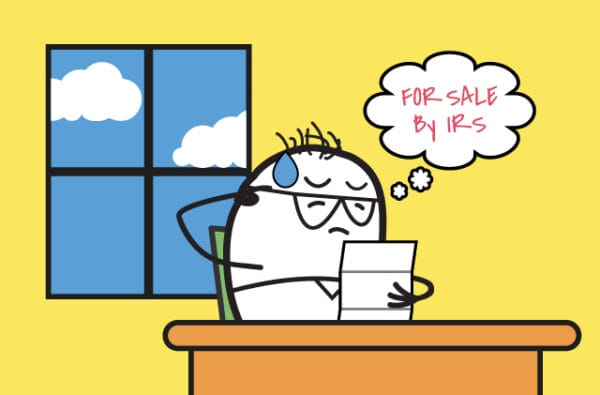What is a Federal Tax Lien?
When business owners and individuals don’t pay the income tax they owe, the federal government has methods of recovering the debt. A federal tax lien is one of those tools. A federal tax lien (also called an IRS tax lien) is a legal claim that lets the lienholder take your property if you don’t fulfill certain obligations.
Under an IRS tax lien, the government has the authority to seize your house, car, business assets, and other property to settle your unpaid tax debts. A tax lien can also prevent you from selling or giving away your business and any assets, real property, and personal property until you make good on that tax debt.
Examples of property that may be subject to a federal tax lien include:
- Residential and commercial real estate
- Vehicles
- Boats
- Motorcycles
- Collectibles
- Art
- Bank accounts
- Accounts receivable
How Will a Lien Affect Me?
The most pressing impact of a federal tax lien is the potential loss of your property. But even if it doesn’t go that far, there are other unwelcome possibilities. For example, your credit record may take a negative hit. That can prevent you from getting a loan or credit card. It can also affect job, insurance, or rent applications.
Tax liens on your business assets include accounts receivable, impacting your business income. That situation can also hinder your ability to transact business.
Finally, you should know that you might not be able to discharge your tax debt with bankruptcy. So, you may still have to deal with the lien and tax bill after your bankruptcy.
 Can the IRS Place a Lien On My Property?
Can the IRS Place a Lien On My Property?
The IRS must follow laws and procedures to place a lien on your property meaning that they can make it difficult for you to sell your house, refinance your mortgage or get a new line of credit until the debt is paid. That process begins with the documentation of your unpaid tax liability and notifying you of the tax debt. If you haven’t paid the taxes you owe, the government must send you a Notice and Demand for Payment before they can get a lien against your property. That notice is a bill detailing the amount due and the date you need to pay.
Once you receive the notice, you must act. But if you fail to pay on time or neglect to set up a payment plan, the IRS can move forward with a lien. So the next step for the government is to file a Notice of Federal Tax Lien. This lets creditors know that the IRS has a legal claim on your stuff.
Don’t let the situation overwhelm you. Payment options are available to help you settle your tax debt over time. We can help you choose which one fits your situation best. So, if you can’t file or pay on time and need help responding to the IRS, DO NOT ignore any correspondence the IRS sends you. For help responding, call the CPA Nerds at (586) 468-0200.
How Do I Handle a Tax Lien?
Prevention is the most straightforward course. That starts before you file. Take steps to ensure the tax withholding on your paychecks is correct. Or, if you’re a business owner, set aside sufficient funds quarterly to meet your tax obligations. Unfortunately, financial problems or faulty tax planning can impede those actions.
If you couldn’t pay enough during the year and don’t have the money to pay the debt after you file, a tax professional may be able to help. A skilled CPA can assess your financial situation and negotiate a workable solution with the IRS. By being proactive, you can potentially prevent the government from moving forward with an IRS tax lien.
Do you or someone you know have unresolved federal tax issues with the IRS, such as unfiled taxes, unpaid payroll taxes, collection notices, or a wage and property asset lien? Please contact us to book a time to speak with our knowledgeable tax specialists to help you.

 Can the IRS Place a Lien On My Property?
Can the IRS Place a Lien On My Property?